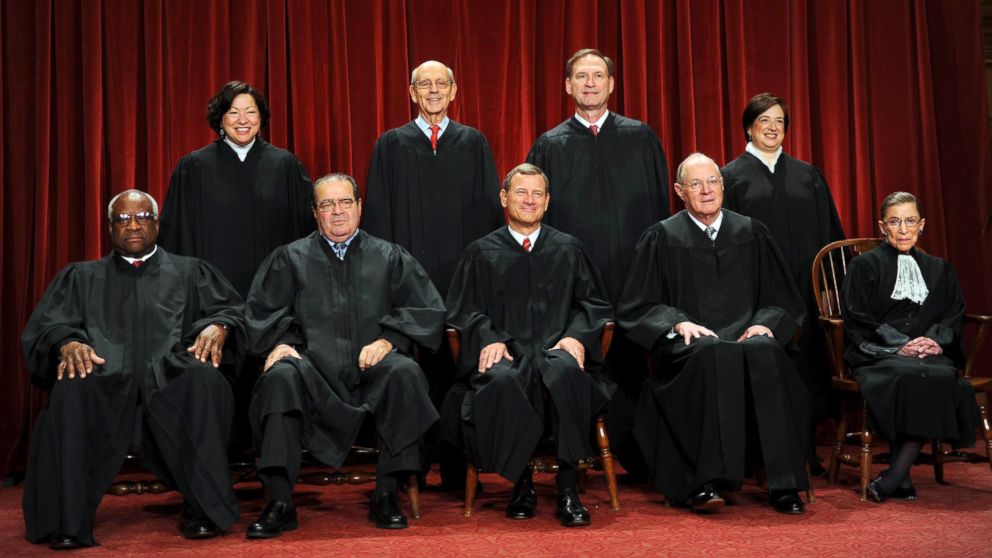
The Supreme Court of the United States (SCOTUS) recently ended its latest term with a flurry of important decisions, including the much-discussed (and ridiculed) Hobby Lobby case, ruling that women could be denied contraceptive coverage under the Affordable Health Care Act if their employer stated that they were religiously against contraception. As in so many other years when the big cases came due, and were determined by 5-4 decisions, the pundits and regular people like me talked about the politics of the decision, the makeup of the court, and why we should all vote a particular way for president and senator (since they together pick SCOTUS justices).
I happen to come across a post (can’t remember where) talking about consensus on the Court during all this, which stated that despite the media stressing the 5-4 decisions, this particular Supreme session actually was more congenial and agreeable than many recent years. The justices all agreed that people shouldn’t have their cell phones searched without a warrant, as an example. We don’t hear much about Supreme Court decisions throughout the year, unless you happen to be listening to NPR during Nina Totenberg‘s analyses. But a search on this session’s SCOTUS decisions produced this page, where a table of cases showed of the 82 taken in the year from July 1, 2013 to June 30, 2014, the Court achieved consensus (either 9-0 or 8-0) in 46 of them. Seven of the cases were included in other decisions, so of the 75 decisions, over 61% were unanimous. That’s pretty impressive for a Court with Clarence Thomas (and Antonin Scalia) and the three female members (Ginsburg, Sotomayer, and Kagan) sitting together.
What if SCOTUS decisions HAD TO BE UNANIMOUS? Like juries (which they basically are), the justices of the Supreme Court, I submit, should come to consensus on ALL cases. The decisions they make are too important to to have significant dissent, and since they cannot be appealed, have tended to become law for quite a while, even though theoretically they can be overturned by Congress (as the Democrats are currently trying with the contraception case). If we require 12-person juries to come to consensus in cases that are arguably less important than SCOTUS cases, then surely we can ask the 9 justices to agree on their decisions. And since this occurs a lot more than we think already, it wouldn’t be too much of a stretch.
I can’t help thinking that some of the really contentious and important SCOTUS decisions, such as the one which effectively selected the president of the United States (that’s POTUS, of course) in 2000, would be different if consensus was required of our justices. I think it would take the edge off of SCOTUS politics, and most likely be fodder for more great movies, like 12 Angry Men, the 1957 movie about what can happen in the jury room to reach consensus – one of my favorites.
This strikes me as a reasonable proposal. Complaints of “judicial activism” have been raised by liberals and conservatives. The high court now feels like another political sporting arena.
Thanks, Watt. Actually, I was listening to Moyers and Company on KMUN the other day, and Bill had on a couple of Supreme Court experts who said that the Roberts Court has been more partisan than any court in the last 40 years, belying the argument I make in the post a little. Check out the interview here.